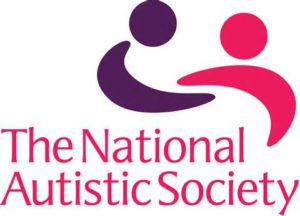 My name is Tom, Student Consultant with Access2Learn, and on behalf of our company, welcome to the first instalment of our blog and thank you very much in advance for taking the time to read it.
My name is Tom, Student Consultant with Access2Learn, and on behalf of our company, welcome to the first instalment of our blog and thank you very much in advance for taking the time to read it.
So why write a blog? Glad you asked … although, technically you didn’t, but … anyway, my reasons for writing the blog are to acquaint you with A2L, what we have to offer and what makes us different. I also wish to discuss what life was like as a disabled student, while also providing advice on a number of different problems you might face, methods of organisation and study, how to cope with the depression that often accompanies studies … so on and so forth. I’m sure you get the idea.
But anyway, back to me. I am Autistic – for those of you not familiar, autism is primarily a social disability which affects social instincts and communication. Though it manifests itself in a number of ways and to varying degrees, so no two autistic people will be alike, for me the struggle to socialise makes my world a very lonely one. We also exhibit very narrow interests which are often very intense and may even border on obsession – for example, I could talk for hours about things like video games, the history of autism in the UK, the martial art Aikido and one or two other weird and wonderful topics, but if I were trying to hold a simple conversation about football results, Game of Thrones, or whatever the latest celebrity gossip is, I wouldn’t know up from down. Anyway, because of my autism, I was once one of the many students who have benefitted from the wondrous support made available through the Disabled Students Allowance, which allowed me to not only survive, but thrive during my university years.
As far as the vast majority of autistic people in the UK go, I consider myself to be very lucky, although that is not to say that I haven’t worked extremely hard to get to this point, mind you. For one thing, I am lucky enough to be employed in a line of work that I find greatly fulfilling, when many people on the spectrum cannot find work at all. I also made it to university against all expectations, and had the best years of my life there. After three years, I graduated only a few marks away from getting a First Class Degree, which would have been the perfect way to finish, but the fact that I got a very strong 2:1 in no way takes away from the joy my uni days brought to me.
Sadly, I’m not all lucky … I was unfortunate enough to have to go through my mandatory education years without a firm diagnosis of autism. For many years, my parents struggled to get me diagnosed in order to get the support I need, but sadly their efforts were in vain. As a result, my childhood and developmental years were the worst of my entire life. The bullying I faced at school was ceaseless and utterly relentless; insults and mockery were thrown my way every day, along with the occasional fist and even stones. I felt as though I couldn’t complain to my teachers, due to their apparent lack of understanding or sympathy.
In this regard, I am hardly unique – in fact, children at school with autism are at least twice as likely to suffer from routine bullying as other children.[1] Even though I had no diagnosis, the difference of behaviour and socialisation skills acted like a beacon for every bully in my school. That said, it’s no wonder why we’re twice as susceptible to bullying. A study carried out by the Institute of Education in 2014 suggests that the same statistics are true for all students with special educational needs.[2] The National Autistic Society claims that at least 34% of children with autism say that the worst thing about school is the bullying.[3] Given these figures, is it really any wonder why disability awareness is an on-going battle?

Still, you already know by now that eventually my story got better … when I got my DSA assessment, it was first time I’d ever met anyone who really understood … something I’d written off as a lost cause years ago. When I went to De Montfort University, the disability support team there went out of their way to help me, and together with my DSA-funded equipment and especially my mentors from the National Autistic Society, one of whom became the best friend I’ve ever known, they made my uni years the best of my life and made a veritable transformation of my entire being possible, from the ‘weird kid’ at school with no friends and no hope to university-educated working man.
So I suppose the point of this blog is this – like Martin Luther King Jr, I have a dream. That no other disabled student, autistic or otherwise, will ever have to endure what I did at school. That not only will there one day be awareness of each disability and their needs, but acceptance of who they are and appreciation of what they have to offer. That the ‘disability divide’ as I have taken to calling it, will one day be little more than a memory. That’s what I really want out of life, and I think you, dear reader, can tell by now why it’s such a personal issue for me. It’s what I worked for during my time at university as Founder and Chairman of the Disabled Students Society, my volunteering career and now with Access2learn in my Student Consultant role. And in the meantime, I wish to encourage all students, disabled and otherwise, diagnosed or not, to stand with us to help make this desire a reality.
Thanks again for reading my blog, and if you did indeed enjoy it, there’s more on the way!
[1] https://www.ambitiousaboutautism.org.uk/understanding-autism/about-autism/stats-and-facts#_ftn10
[2] http://www.bbc.co.uk/news/education-27902500
[3] http://www.autism.org.uk/about/what-is/myths-facts-stats.aspx
